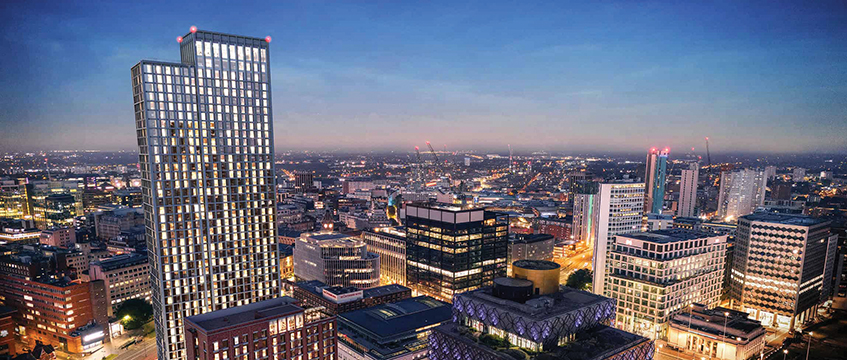In 2002, a consortium paid $492 per sq ft for a desirable building in New York. Standing on Park Avenue and 57th, it cost an NY pension fund and Taconic Investments a total of $158m.
This week, five years later, they are celebrating selling it for $510m – a staggering $1,589 per sq ft.
No wonder Taconic’s CEOI, Paul Pariser said, “it was simply time to mine a fantastic asset sale for us”.
It is clear that the commercial real estate business in the US is more than holding up despite the turmoil in the housing market.
As one might expect, buyers are picky.
Prime sites have moved ahead apace, less favoured locations are dragging and the gap is getting wider.
Nonetheless, fears that the problems in the US debt market would dampen commercial real estate have proved groundless and overseas investment continues.
Hurrah for success
The enthusiastic response to this news was very different from the press coverage of foreign buyers in London.
Here, the continuing disproportionate rise in the value of the most expensive London houses has been attacked on all sides.
Envy is the Daily Mail’s ruling passion success is the criterion in New York.
The US will continue to outperform the UK as long as we are infected by the “British Disease” – a compulsive desire to pull down anyone who succeeds.
A success story like Foxtons would have been lauded in the US. Instead, obloquy was heaped upon the head of owner John Hunt.
Yet he has transformed the residential property market in London, raised its service standards and improved its technology.
Mind you, not all the old entrepreneurial attitudes are dead.
A surprising example arose in a recent meeting with the leader of Croydon council, Cllr Mike Fisher.
On his election last year, he said simply: “I just want to see the cranes over Croydon skyline again. That will mean that we are delivering.”
At last, the proper measure of success – and from a local government leader.
Here at least was an elected councillor who understood that development is a sign of growth and success.
The property industry has allowed the nation to forget that.
Instead, developers are portrayed as greedy and destructive and this is reflected in the discussions about property taxation.
Commercial property had no chance of a proper deal over stamp duty because its public image made it almost impossible to get anyone to listen.
So it is that developers lose out with the press, public and politicians on both grounds.
All success in Britain tends to evoke envy in addition, successful developers are assumed to have made a killing by manipulation.
The world can be very unfair and the property industry is increasingly disadvantaged by that unfairness.
There is little that we can do about the “British Disease” – envy is all-pervasive.
We can, however, do much more about the attitudes to development.
The current concentration on climate change gives the industry a huge opportunity.
New-build and refurbishment provide a key element in the climate change agenda.
Politicians and the public know that the built environment is a major source of emissions.
At the moment, all the concentration is about what the government should do to the property industry to cut those emissions.
It is time that we came out with our own radical plan.
Regaining the initiative
It will involve calling for tougher standards and more stringent enforcement but it could be more user-friendly and much more effective than anything bureaucrats could devise.
For once, the industry would be on the right side of the argument and it would begin to build a new reputation – a reputation that would pay real dividends when we negotiated on taxation and planning.
The HBF has started down this path, the BPF has done a bit.
What we need now is headline grabbing stuff, outdoing in vision the government’s Climate Change Bill.
And not just the industry bodies – individual companies must take the lead too.
What about Grosvenor saying all developments started after 2008 will be carbon neutral or Westfield promising to deliver 50% of the energy needs of all its new shopping centres from locally produced renewable sources or St Modwen guaranteeing rainwater harvesting and 100% greywater systems from next year.
It is a challenge the industry cannot afford to ignore.
John Gummer is Conservative MP for Suffolk Coastal and a former Secretary of State for the Environment










